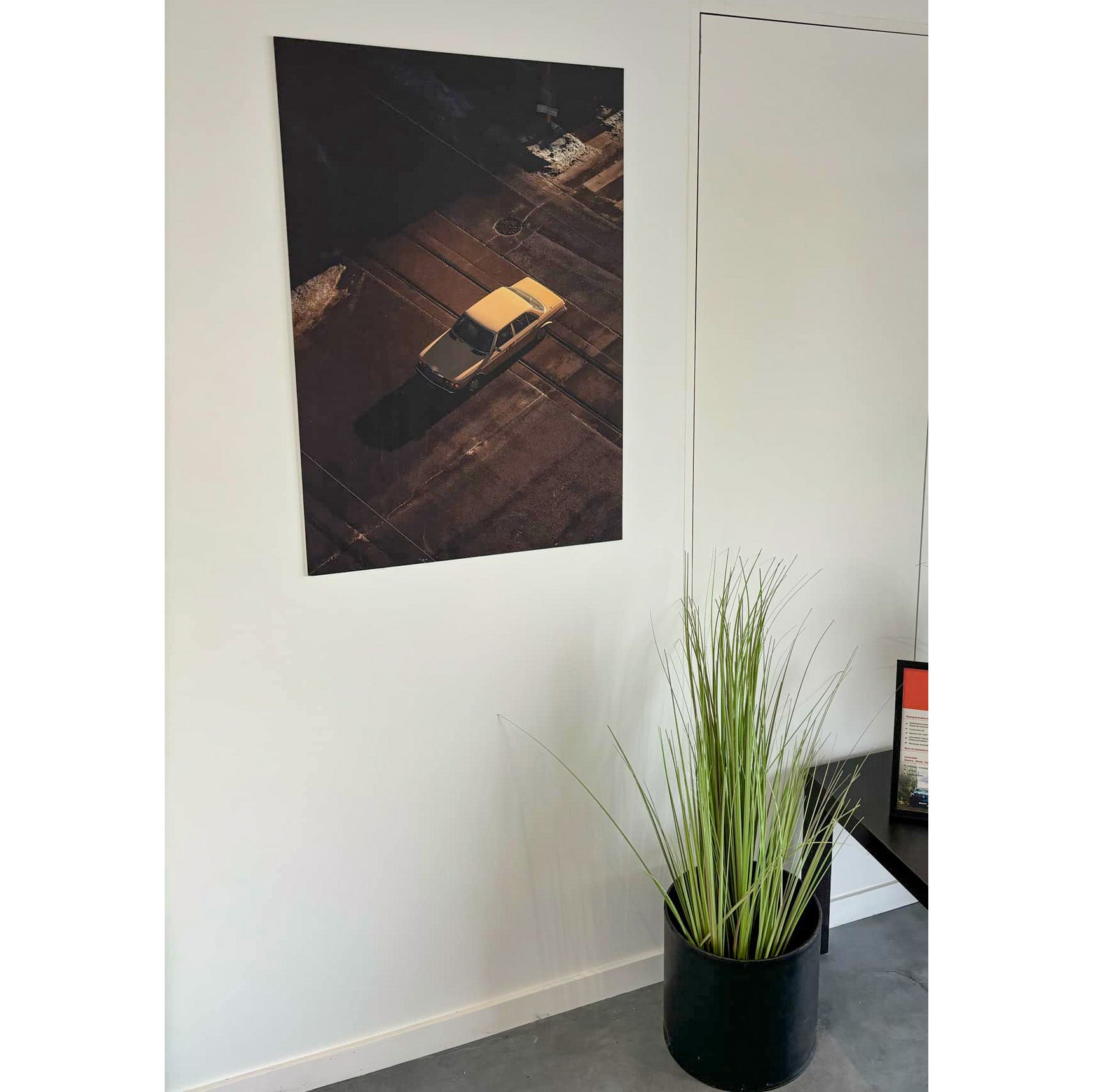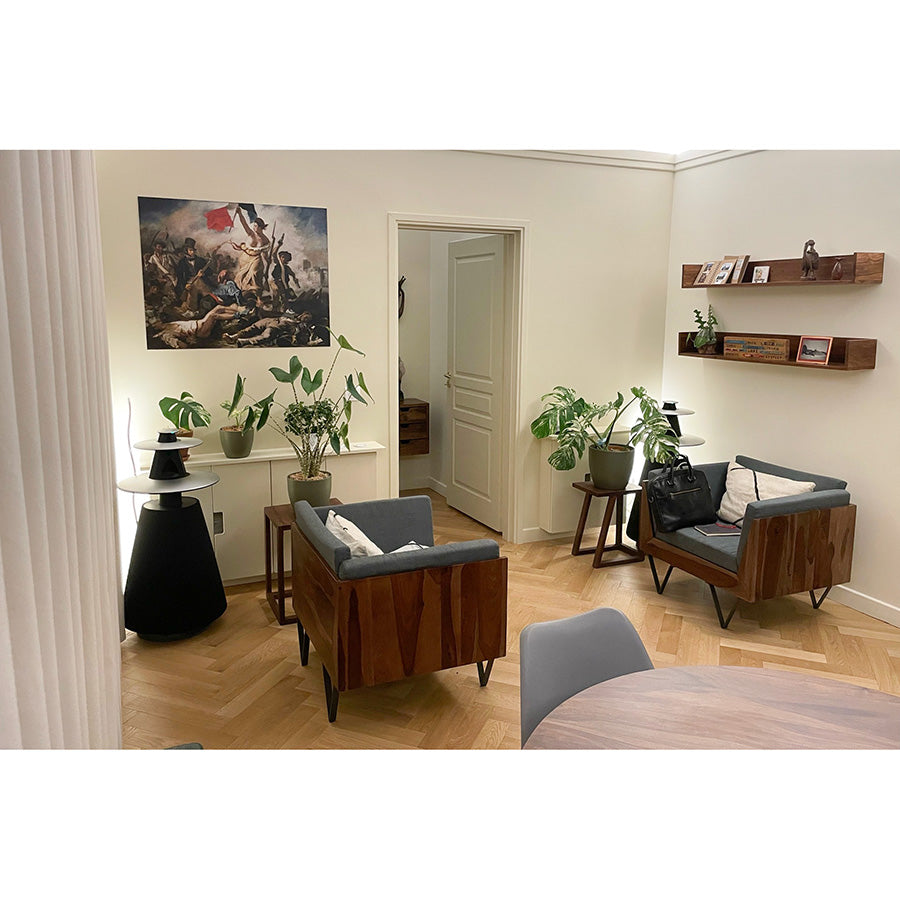Elegant Company in a Garden - Louis Gabriel Moreau Art print


View from behind

Frame (optional)
In the enchanting universe of 18th-century art, "Elegant Company in a Garden" by Louis Gabriel Moreau stands out for its delicate charm and refined depiction of aristocratic life. This artwork, imbued with lightness and sophistication, transports the viewer to a garden where time seems to stand still, inviting peaceful contemplation. The characters, dressed in period costumes, flourish within a natural setting, illustrating the harmony between man and nature. The art print of this piece allows appreciation of the finesse of details and the richness of colors, showcasing the artist's technical skill.
Style and uniqueness of the work
Moreau's style is characterized by meticulous attention to detail and a vibrant color palette that brings his compositions to life. In "Elegant Company in a Garden," every element, from lush foliage to ornate costumes, is carefully crafted, creating an atmosphere of timeless elegance. Light plays a crucial role in this work, illuminating the faces of the characters while emphasizing the textures of clothing and natural elements. The scene depicts not only a moment of conviviality but also a celebration of beauty and culture of the time, where the garden becomes a true theater of social life. This painting is a perfect example of how art can capture the essence of an era while providing an immersive visual experience.
The artist and his influence
Louis Gabriel Moreau, recognized for his exceptional talent and ability to capture the nuances of daily life, left an indelible mark on the art world. Active at the end of the 18th century, he established himself as one of the masters of landscape and genre scene, influencing many contemporary and future artists. His unique approach to composition, blending realism and idealization, created works that transcend the simple pictorial frame to become reflections on society of his time. By exploring themes such as love, nature, and conviviality, Moreau fostered a dialogue between art and life, making his works surprisingly modern.

Matte finish

View from behind

Frame (optional)
In the enchanting universe of 18th-century art, "Elegant Company in a Garden" by Louis Gabriel Moreau stands out for its delicate charm and refined depiction of aristocratic life. This artwork, imbued with lightness and sophistication, transports the viewer to a garden where time seems to stand still, inviting peaceful contemplation. The characters, dressed in period costumes, flourish within a natural setting, illustrating the harmony between man and nature. The art print of this piece allows appreciation of the finesse of details and the richness of colors, showcasing the artist's technical skill.
Style and uniqueness of the work
Moreau's style is characterized by meticulous attention to detail and a vibrant color palette that brings his compositions to life. In "Elegant Company in a Garden," every element, from lush foliage to ornate costumes, is carefully crafted, creating an atmosphere of timeless elegance. Light plays a crucial role in this work, illuminating the faces of the characters while emphasizing the textures of clothing and natural elements. The scene depicts not only a moment of conviviality but also a celebration of beauty and culture of the time, where the garden becomes a true theater of social life. This painting is a perfect example of how art can capture the essence of an era while providing an immersive visual experience.
The artist and his influence
Louis Gabriel Moreau, recognized for his exceptional talent and ability to capture the nuances of daily life, left an indelible mark on the art world. Active at the end of the 18th century, he established himself as one of the masters of landscape and genre scene, influencing many contemporary and future artists. His unique approach to composition, blending realism and idealization, created works that transcend the simple pictorial frame to become reflections on society of his time. By exploring themes such as love, nature, and conviviality, Moreau fostered a dialogue between art and life, making his works surprisingly modern.









